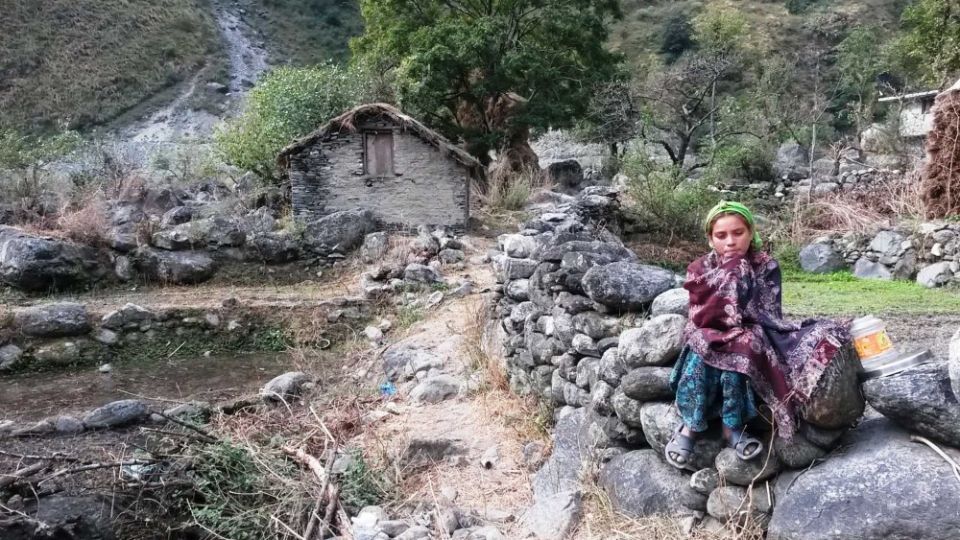February 8, 2019
Cold winter nights add to the trauma of women banished to period huts.
Bimala Bohara has been spending five days of a month inside a shed every single time she has had her period since her early teens. Now 28, Bohara said the worst aspect of Chhaupadi is practising the custom in the cold when temperatures plummet and it is almost difficult to fall asleep inside the shed.
“We can’t even build a fire inside because the shed gets filled with smoke, and then it becomes suffocating,” said Bohara, who was on the third day of her period in a rural village in Bajhang.
Chhaupadi, a deeply rooted Hindu tradition, forces menstruating and postpartum girls and women to be banished to secluded huts. The practice is still prevalent in several districts of Sudurpaschim Province. In some of the province’s districts of Bajhang, Achham, Bajura, heavy snowfall has caused temperatures to drop, making it extremely difficult for girls and women forced to spend nights in Chhaupadi sheds. And starting a fire to keep warm is not an option.
Only last week, 21-year-old Parwati Bogati of Purbichauki Rural Municipality-5 in Doti district, who built a fire inside a Chhaupadi shed to beat the biting cold, died of suffocation.
On January 9, Amba Bohara of Pandusen in Budhinanda Municipality-9 in Bajura and her two sons aged 12 and 9 were found dead in a Chhaupadi shed. Police said all three died due to suffocation by a fire built inside the hut.
Recently, several Chhaupadi sheds were demolished to declare the region Chhaupadi-free. The women complain that this has made it difficult for them as they are now compelled to stay in tarpaulin tents, makeshift huts and even caves as Chhaupadi-free drive remains ineffective in the region.
Amrita Rawat, of Mangalsain Municipality-13 in Achham, said the girls and women on their periods in her village are forced to stay in congested Chhaupadi sheds during the severe cold, risking their lives. “The Chhaupadi sheds are far from homes. The women have to spend nights shivering in the cold. These sheds do not have windows, and there are high chances of suffocation if a fire is lit to warm the sheds,” said Rawat.
The girls and women on their periods are generally not allowed to wear warm clothes or use quilts and blankets. They are discouraged to use thick clothes as they have to wash the clothes after use. Sita Budha, 35, of Dantoli in Bajhang, said that she has spent five days shivering in a Chhaupadi shed every month since she was 13 years old. “When I was younger, I only felt cold in the shed. But now my joints hurt and they get swollen due to the cold,” she added. “Every time my periods near, the thought of spending nights in Chhaupadi shed makes me anxious, and I have trouble sleeping at night,” said Budha.
For unmarried girls and women, Chhaupadi rules are stricter. They have to spend seven nights in Chhaupadi sheds, whereas married women have to stay for five nights. Spending prolonged time in Chhaupadi sheds makes them vulnerable to a host of diseases like common cold, pneumonia and diarrhoea.
Since women in Chhaupadi are deprived of nutritious foods, rights activists have raised questions regarding the health of women and their infants.
“Chhaupadi has made life very difficult for menstruating women. Even our daughters have to face the same ordeals, all in the name of social norms,” said Tuli Devi Rawat, a local from Bajhang. She said that it is quite difficult to eliminate the deeply rooted practice as it is linked to religion, culture and tradition.
Even though the Supreme Court banned Chhaupadi in 2005, and a new law that criminalises Chhaupadi came into effect from August 2017, the practice is still prevalent in the western region of the country and takes many lives every year.


